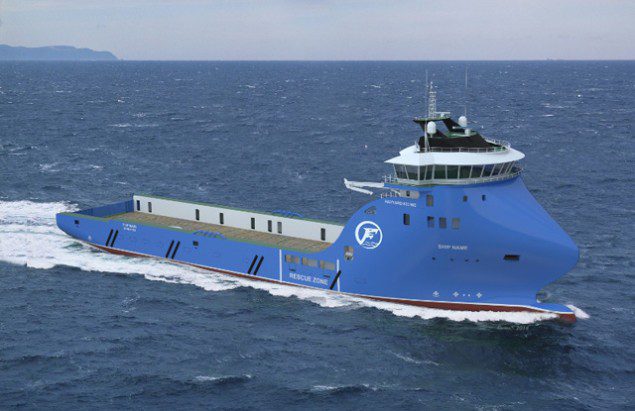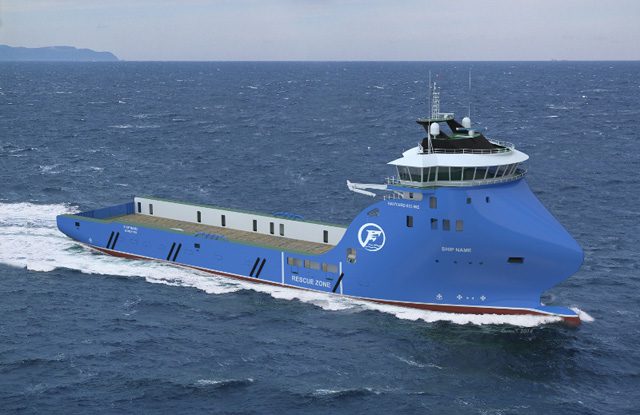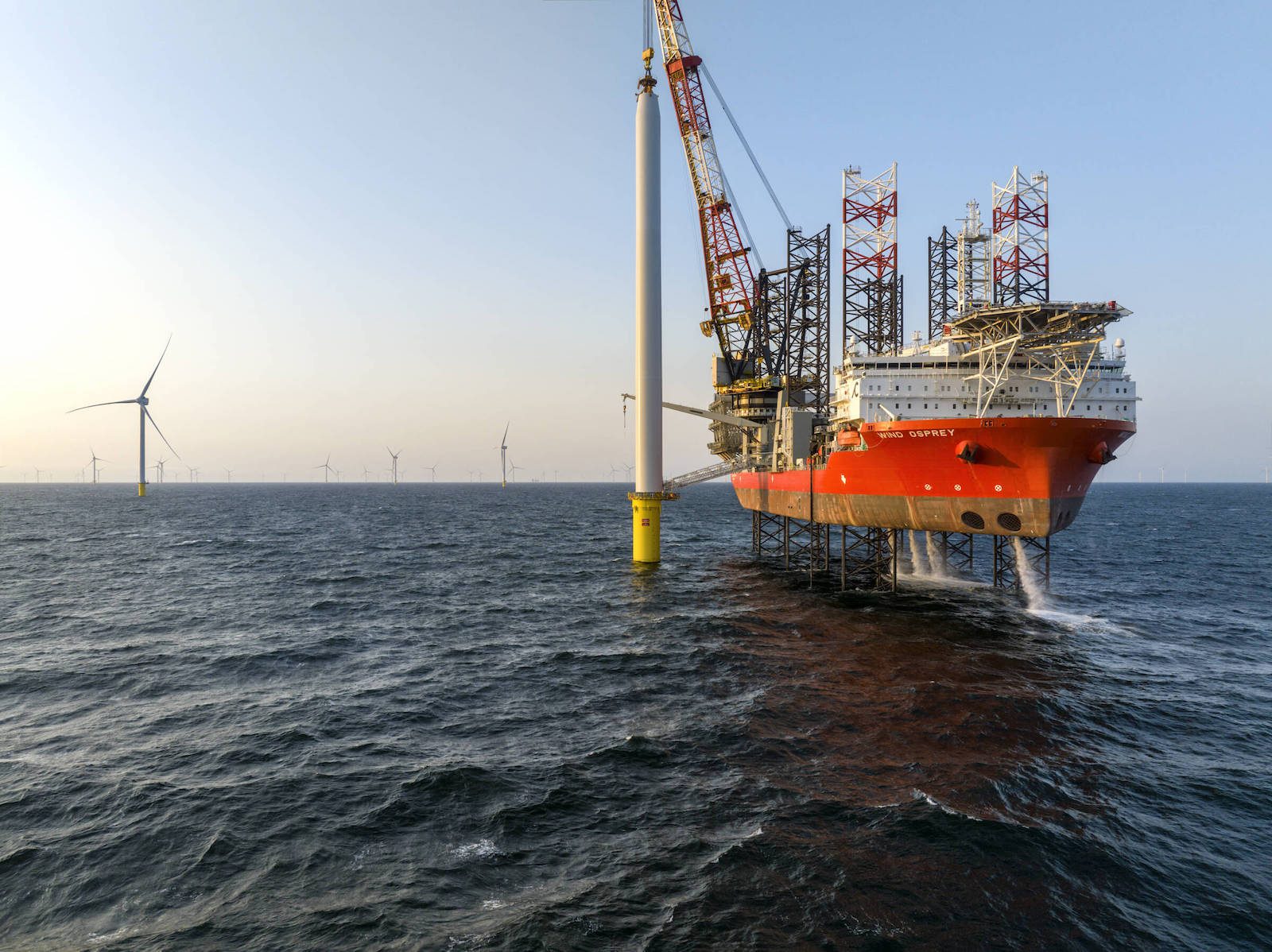
Havyard, the Norwegian ship technology company, signed a contract today to build a hybrid battery powered platform supply vessel (PSV) for the privately-owned Icelandic oil services company, Fafnir Offshore.
This is the second such order placed by former fishing boat owner Steingrímur Erlingsson, founder and CEO of Fafnir and the pioneer of Iceland’s entry into the offshore oil and gas sector. Erlingsson notes, “we have also secured an option for construction of a sister ship to be delivered during the fourth quarter of 2015 and we strongly believe we will take advantage of this option.”
The vessel, a Havyard 833 WE ICE design, comes at a total contract cost of NOK 350 million and will be built in Turkey at an undisclosed yard. Management of the build will be handled by Havyard Ship Technology and is due for delivery in July 2015.
Vessel Particulars:
Length: 89.7 m
Breadth: 19.6 m
Speed: 15 knots
Deck area: 1000 m2
Crew: 25 persons
Dead weight: 4250 tonnes
The Design
Due to varying power demands inherent to offshore operations, this ship is equipped with a hybrid battery powered diesel-electric propulsion system which enables the diesel engines to be operated at an optimal power level, and fuel consumption rate when running. Havyard notes that the response time in relation to variation in power demands is also a lot shorter with this type of system, enabling a quicker transfer of power to the ship`s thrusters for more precise and secure positioning.
“When we develop a new ship design we have two main focal points,” notes Arve Helsem Leine, Design Manager at Havyard, ‘Those are the customer`s demands in relation to the ship’s operational needs and area of operation and also to use the latest accessible technology and research tools in order to make the ship as efficient as possible.”
We have invested a lot in our design philosophy and in our calculation tools and methods for testing. We also work closely with key suppliers in developing good solutions for our designs and hybrid battery power is a good example of this.”
Leine notes that this system will provide a 3o to 40 percent savings in fuel costs compared to a traditional PSV.

 Join The Club
Join The Club












